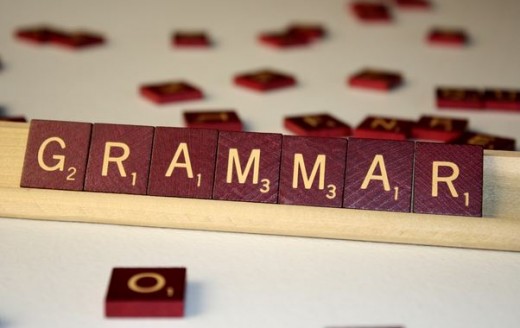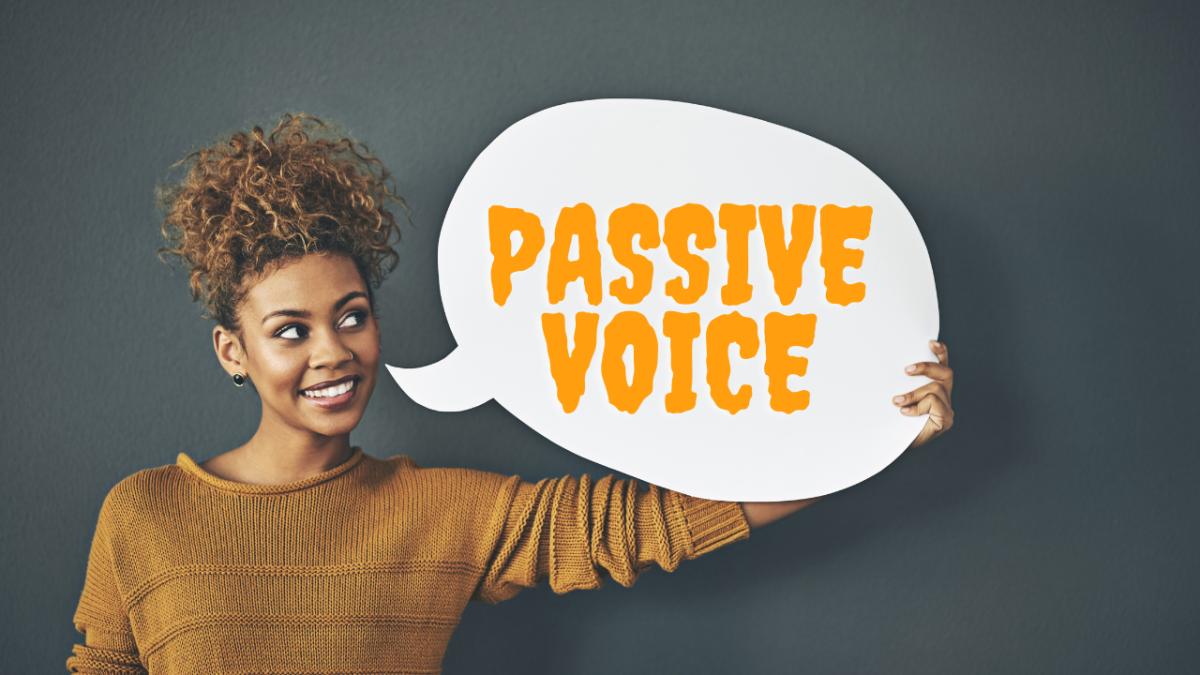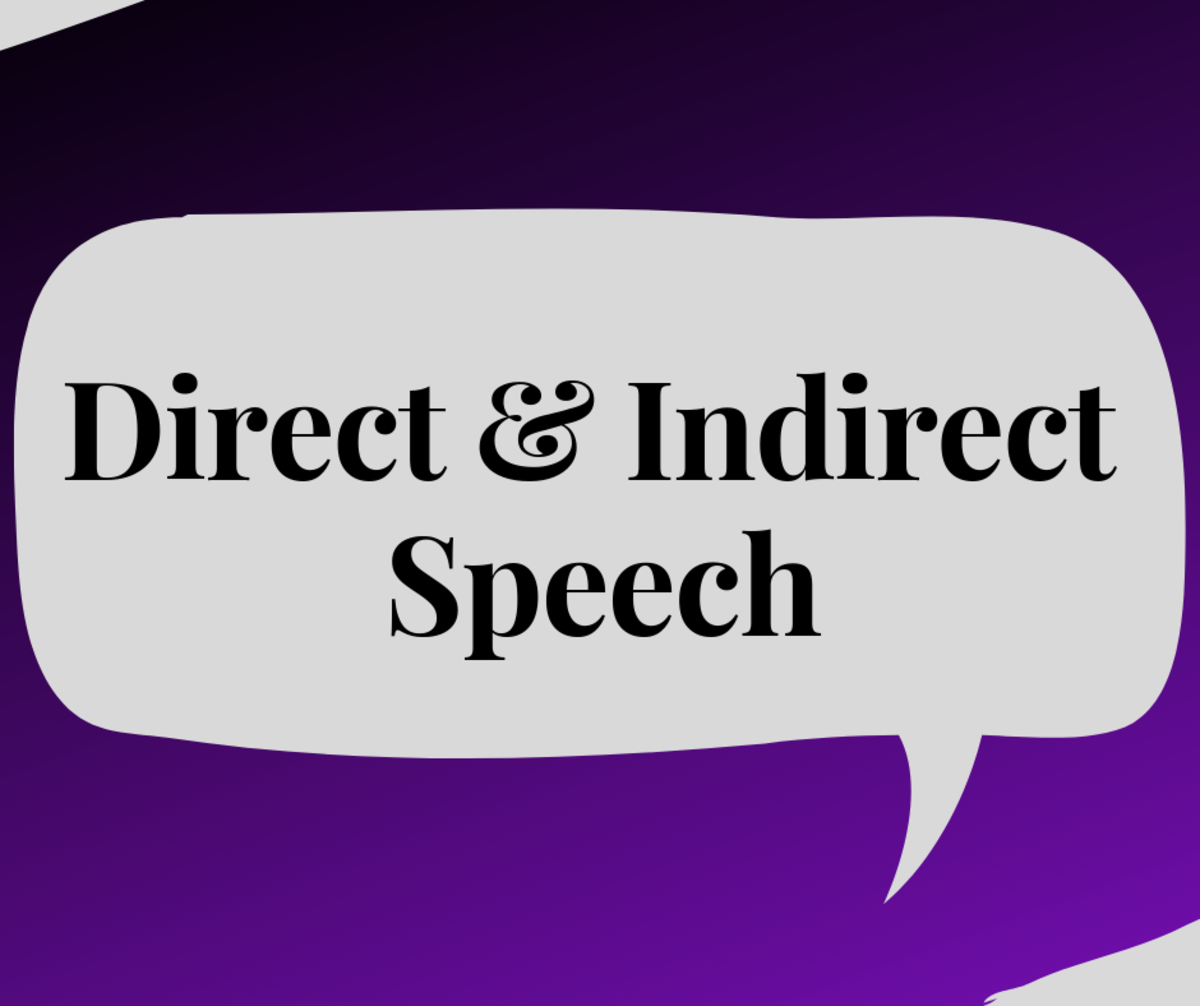- HubPages»
- Books, Literature, and Writing»
- Commercial & Creative Writing»
- Word Usage & Grammar
15 Common Grammar Mistakes We Frequently Encounter

Every and Each
I think by now every speaker of English knows that the words Every and Each always take singular verbs whenever they are used to form sentences.
For example:
- Every American citizen is angry with the policy.
- Each athlete was given a medal.
We all know this, but what some of us probably don’t know is the fact that when we use “Every” or “Each” even with the word (conjunction) “And”, and which involves two totally separate subjects, the verb used must always be singular.
Examples:
- Every boy and girl in the United States loves the singer.
- Every student and teacher was impressed by John’s performance.
- Each singer and actor in the country likes the president.
- Each American and Mexican is going to be given a copy of the brochure.
Either…or and Neither…nor
When two subjects are joined together by either…or or neither…nor, many people sometimes find it confusing whether to use a plural or singular verb in the sentence. For example, in the sentence:
- Either the men or the child is or are attending the party.
In the sentence above, do we use the singular verb “is” or the plural verb “are”? This is the question some of us sometimes have to battle with. But the answer is to go in for the singular verb “is”. Therefore the correct sentence is:
- Either the men or the child is attending the party.
The reason why the right verb is the verb “is” is because of the fact that when two subjects are joined together by either…or or neither…nor, we focus only on the subject closest to the verb and make sure that the subject agrees with the verb. Therefore if the subject is plural, the verb used should also be plural, and vice versa. This is what is normally referred to by certain grammarians as Proximity Concord.
Examples:
- Either the brothers or John is coming home tonight.
- Either James or his friends know where the fugitive is hiding.
- Either Amanda or Shelton is responsible for this mess.
Everybody
The indefinite pronoun “everybody” always takes a singular verb. While this might seem very obvious, strangely many Americans tend to use the word everybody with plural verbs. It is not uncommon to hear this wrong sentence in America: Everybody know it.
Of course the right way to say it is: Everybody knows it.
Examples:
- Everybody in the classroom knows how to dance.
- Everybody is going to be surprised when they hear the news.
- Everybody loves Raymond.
“Everyone of”, “Each of”, “Either of”, “One of”, etc
Expressions such as “everyone of”, “one of”, “each of”, etc always take singular verbs when used to form sentences simply because they lack relative pronouns.
Examples:
- Either of the brothers is gone.
- Everyone of them knows how to play the drums.
- One of the children is not feeling well.
- Neither of the boys plays the guitar.
- Only one of the new books is interesting.
- One of the terrorists is from Syria.
With, as well as, together with, accompanied by, along with, etc
When the words above are used in sentences to “join” two or more subjects together instead of using “And”, we must focus only on the first subject and ignore the other subject(s) coming after any of the words above.
Example:
- The man along with his wife is coming home. (CORRECT)
- The man along with his wife are coming home. (WRONG)
The first sentence is correct since we are focusing only on the first subject “the man” and ignoring “his wife”. Since the second subject “his wife” comes after the phrase along with and is not joined to the first subject with the conjunction “AND”, we ignore it and focus only on the first subject and make sure it agrees with the verb.
Examples:
- The president with his ministers is visiting the university.
- John as well as his friends sings very well.
- The man together with his children was arrested by the police last night.
“Between themselves” and “Among themselves”
A lot of people get confused when it comes to using the phrases “between themselves” and “among themselves”. The problem here is that sometimes some people use between themselves when they are supposed to use among themselves, and sometimes vice versa.
So how do we really use them the right way?
When two people share something, you use between themselves but when three or more people share something, you should use among themselves.
Examples:
- The two brothers shared the food between themselves.
- The five students in the classroom shared the drink among themselves.
Had better
Whenever you use the phrase “had better”, it must be followed by a Simple Present Verb and not a past verb. This is the reason why we always say stuff like: “You had better go” instead of “you had better went”.
Examples:
- You had better drink some water before you give the speech.
- You had better see John before making your final decision.
- We had better leave now, or we’ll miss the concert.
Look(ing) forward to
Whenever you use the phrase “look(ing) forward to”, the verb that comes after the preposition “to” must end in “..ing”. This is the reason why it is wrong to say something like this: I am looking forward to see you tomorrow. Instead of that say this: I am looking forward to seeing you tomorrow.
Examples:
- The new principal is looking forward to meeting the teachers.
- I look forward to meeting them at the party.
- We are looking forward to hearing from you soon.
“But” after “Although” or “Though”?
More often than not, certain speakers of English wrongly use the conjunction “but” after the conjunction “although” when making sentences. This is wrong. We never use the word “but” after a though-clause. It is therefore wrong to say this: Though John was sick, but he still played the game. (WRONG). You should get rid of the “but” and use “yet” or nothing at all. This is the correct version of the wrong sentence above: Though John was sick, he still played the game. You can also say this: Though John was sick yet he still played the game.
Examples:
- Although his parents are from Chicago, he has never been to Chicago.
- Though I studied hard, I failed the exams.
- Although I dislike him, I think he has a strong point.
All that or All what?
One of the most common problems people face when it comes to grammar is the dilemma of saying all that or all what. Do we say all that or all what?
We never say “all what”. As a rule, “All” must always be followed by THAT and not WHAT! We therefore always say all that.
Examples:
- Do you recall all that he said to you last night?
- I can’t believe he is doing this to me after all that I have done for him.
- He has forgotten all that I said to him at the meeting.
It’s high time and It’s about time
I did a recent study into the use of the phrases “it’s (high) time” and “it’s about time”, and found out that a lot of us often make grammar mistakes with these expressions. Whenever one uses the phrase “It’s (high) time” or “it’s about time”, it must be followed by a Simple Past Tense and not a Simple Present Tense.
Examples:
- It’s high time we stop this argument. (WRONG)
- It’s high time we stopped this argument. (CORRECT)
Remember to always use a past verb with the phrase it’s (high) time or it’s about time.
Examples:
- It’s high time the world came together to fight terrorism.
- It’s about time we started taking our lessons seriously.
- The citizens now realize it’s time they kept their environment clean.
- It’s high time you stopped seeing that boy.
No sooner had
We never use “no sooner had” with WHEN. As a rule, “no sooner had” should always be used with THAN.
It is therefore wrong to say: No sooner had John arrived WHEN the accident occurred. (WRONG)
Instead of that say this: No sooner had John arrived THAN the accident occurred. (CORRECT)
Examples:
- No sooner had it started to rain than we arrived home.
- No sooner had the singer arrived than the journalists photographing him.
In accordance with or to?
Another common grammar problem we commonly face is deciding whether to say in accordance to or in accordance with. Do we say in accordance with or in accordance to? We must always use the preposition WITH when using the phrase “In accordance”. We therefore always say “In accordance with” and not “in accordance to”.
Examples:
- In accordance with the rules and regulations of the school, John was sacked for stealing.
- It’s imperative that you use the phone in accordance with the manufacturer’s instructions.
Prefer, inferior, superior
When comparing two things using any of the words above, you should always use the preposition to between the two things you are comparing.
Examples:
- I prefer singing to dancing.
- Adele is a superior singer to Taylor Swift.
- This computer is inferior to that one.
Last but not least
Many times you hear people say this: “the last but not the least”, which is very wrong to say. We should always say “last but not least” instead of “the last but not the least”.
Example:
- And last but not least, let’s hear it from John.
- I have traveled to beautiful cities like London, Paris, Tokyo, and last but not least Stockholm.







